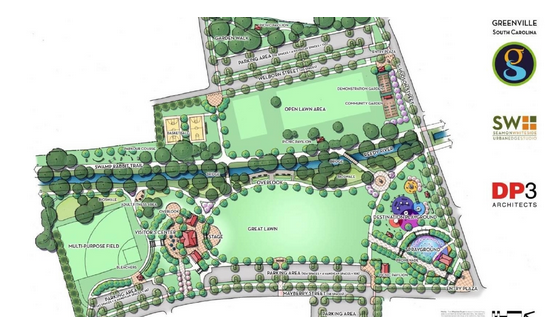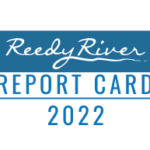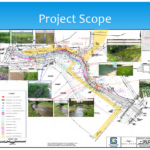The city of Greenville is wrestling with how to fulfill the vision of an expansive, $12.9 million park along the Reedy River on the city’s west side.
Greenville News, May 19, 2015

The thousands of dollars needed to pay for a master plan that would guide development of a signature park on the city of Greenville’s West Side hasn’t been set aside — but city leaders, through contentious debate, have given the go-ahead to pursue one.
The grand vision is to create a signature City Park — similar in ambition to downtown’s Falls Park on the Reedy — that would be the center of a “park district” on the West Side that has become Greenville’s hottest market for developers.
The problem, Mayor Knox White said, is that the city has no plan to guide what it tells developers, who every day approach the city with requests for direction on what the city wants and intends to do in the area west of Academy Street.
The large portion of where the $12.9 million park would be currently houses the city’s expansive public works campus, which must first be moved at a cost preliminarily expected to be up to $19 million.
The moving of public works, along with how the request for $300,000 to pay for a master plan for the city park, was the point of heated disagreement during Monday’s City Council meeting that took up the coming year’s operating budget.
“Can we not do it this way again?” Councilwoman Susan Reynolds said after a compromise was ultimately reached. “This is not our best moment.”
The compromise allows the city’s staff to pursue a world-class master planner and bring a cost to execute a plan back to the council — but no amount was agreed to.
The city’s staff had presented a figure of $300,000, which they said could come in lower.
Councilman David Sudduth said that while he believes planning for the park is important, the city has yet to vote on a detailed plan to move the public works facility from Mayberry Street next to the KROC Center.
The campus would move to property on Fairforest Way off Laurens Road, a process that has been preliminarily discussed in recent talks over the $168 million budget.
City Manager John Castile said the city needed to “button up” final details about the property before being able to offer a definite cost to move public works.
Sudduth said the council didn’t discuss the money for a park district plan at the beginning of the council’s budget discussions in February, when members are invited to discuss with the staff all of their wishes.
The idea was brought up two weeks ago by the mayor in a public meeting, Sudduth said.
The money spent on a plan is money that can’t be spent later on moving public works, he said.
“You can only spend it once,” Sudduth said.
The mayor said that the city is in the position — “almost to the point of absurdity” — of having to tell developers seeking specifics on the future of the area that the city has no plan to guide who will build the sidewalks or what type of architecture is preferred or where best to put commercial activity.
The community is already using rough green spaces along the Reedy River and Swamp Rabbit Trail while the city has waited years to move forward to make a park out of the open area, White said.
The vast majority of the cost for the plan could be borne by the proceeds from the city’s tourism tax, which is projected to collect $795,000 more over last year.
When Falls Park was conceived more than a decade ago, the city successfully planned the park at the same time it debated tearing down the Camperdown Bridge that cleared the way for it, White said.
The plan would cover the 22 acres already targeted for the park plus 310 acres around it considered part of the planning district. The city owns 51 acres in the district.
Councilwoman Lillian Brock Flemming, who represents the area, said she doesn’t want the city to talk about the park for “another 8 years” and do nothing, though she said no implementation of the plan should be made until public works has been decided.
“I want to make sure public works is taken care of before we do anything,” Flemming said.
The motion Flemming made Monday that ended up being approved unanimously to move forward with a plan also included a provision that money be set aside for a capital improvement fund to improve the city’s neighborhood parks.
Councilwoman Amy Ryberg Doyle pushed for the fund because she said the city’s more than 40 neighborhood parks have been neglected while the city looks toward building an expansive new park.
“We have to take care of what we have now,” Doyle said.
The council had discussed $500,000 for such a fund, though no set amount was voted on and instead delayed until the middle of the upcoming fiscal year, which begins in July.
As part of the park improvement fund, a committee will set a priority list for parks and improvements.
The council unanimously approved the first of two required votes to approve the budget.





